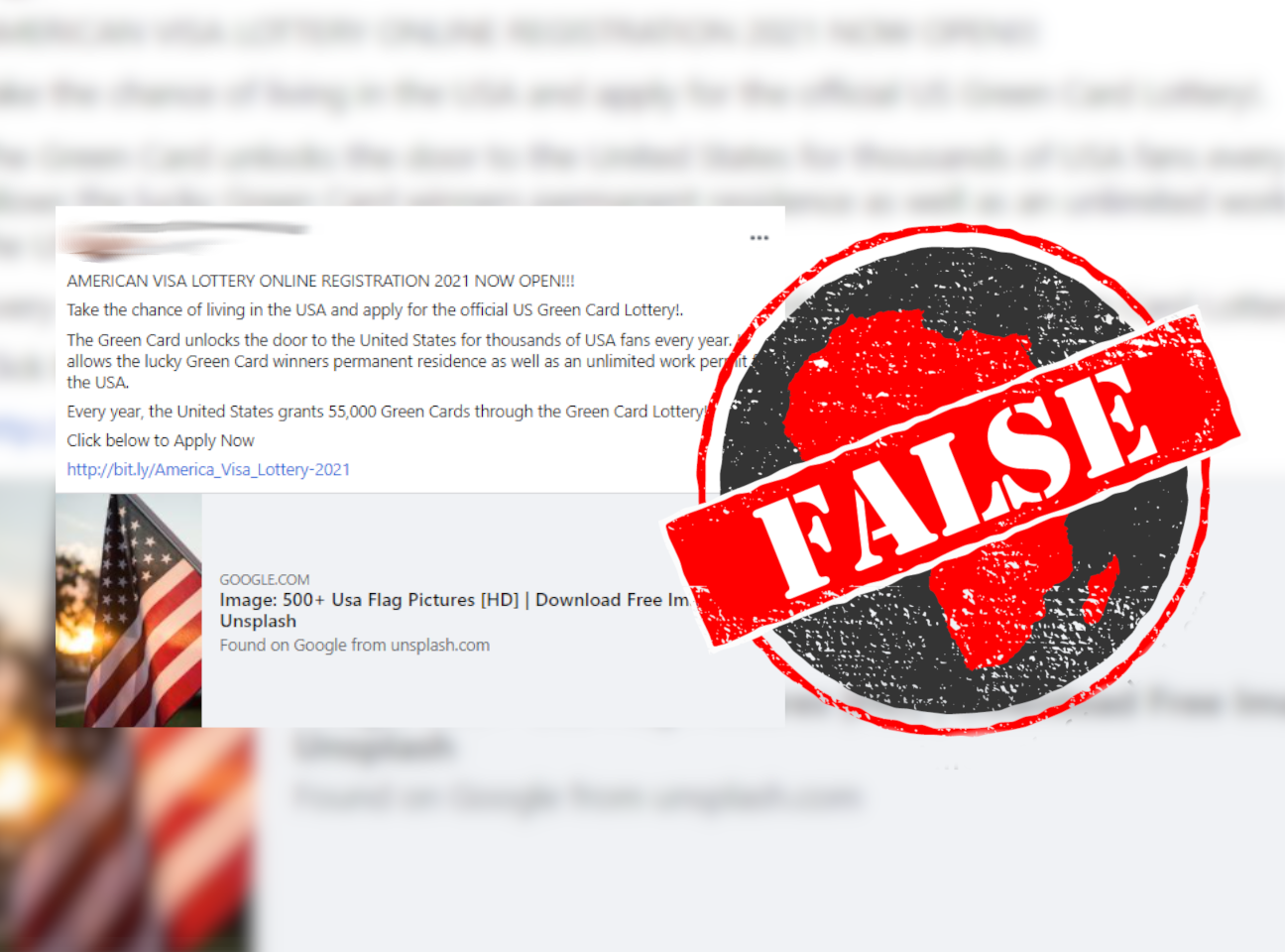“Take the chance of living in the USA and apply for the official US green card lottery,” a post shared on Facebook in Nigeria reads in part.
The claim has also been made by other Facebook accounts in Nigeria.
They all say that the green card winners will get permanent residency and be able to work in the US.
“Every year, the United States grants 55,000 green cards through the green card lottery,” one of the posts claims.
The green card, officially known as a permanent resident card, is what allows non-US citizens to settle and work permanently in the US.
But are these posts correct about how Nigerians can obtain a green card? We checked.

2022 US visa lottery application closed in 2020
The posts refer applicants to apply on a blog which in turn asks them to share the link with 15 friends on WhatsApp or five WhatsApp groups.
This is an example of engagement bait, typically used by scams on Facebook to increase the reach of their posts. In most cases, it is a sign an ad is fake.
The application link is also flagged as a risk for phishing, which is an attempt to obtain personal information such as passwords and credit card details by pretending to be a trustworthy source.
An online search for the “2022 US lottery programme” led us to the bureau of consular affairs, which is within the US state department.
The registration period for the 2022 visa lottery programme, also known as the diversity visa programme, was between 7 October and 10 November 2020.
Lottery not open to Nigerians
Furthermore, Nigerians were not eligible to enter the 2022 visa lottery, according to official guidelines.
This is because this programme is “intended to provide an immigration opportunity for persons who are not from ‘high admission’ countries”.
Nigeria is listed as a high admission country. These are countries where more than 50,000 people have moved to the US in the last five years in the family-sponsored and employment-based visa categories.
Beware of fake websites
In June 2021, the US mission in Nigeria warned people interested in immigrating to be wary of fake websites.
“The US Mission to Nigeria is aware of websites and messages advertising the US visa lottery. All of these sites are FAKE!” the tweet read.
It gave a quick tip for spotting fake websites: “Addresses that have a .gov are the only accurate source of [US] visa information."
Republish our content for free
For publishers: what to do if your post is rated false
A fact-checker has rated your Facebook or Instagram post as “false”, “altered”, “partly false” or “missing context”. This could have serious consequences. What do you do?
Click on our guide for the steps you should follow.
Publishers guideAfrica Check teams up with Facebook
Africa Check is a partner in Meta's third-party fact-checking programme to help stop the spread of false information on social media.
The content we rate as “false” will be downgraded on Facebook and Instagram. This means fewer people will see it.
You can also help identify false information on Facebook. This guide explains how.




Add new comment